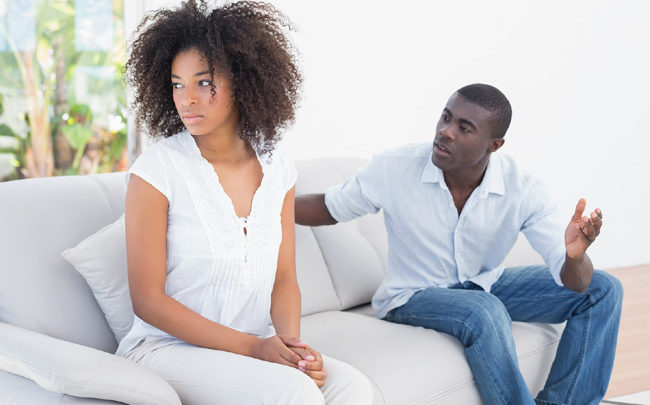10 Reasons People Go Back To Their Abusive Partners

10 Reasons People Go Back To Their Abusive Partners. It can be so tough to watch someone you care about deal with an abusive relationship. Even more difficult is watching that person leave and return to their partner, time and time again. Don’t dismiss such people as crazy, the following reason might be why they make such decisions.
1. Love
Love is complicated. Relationships have good times and bad, and the good times can be a powerful glue. Love is the ultimate connection, solidified by months or years of time spent and energy invested. In a society that tells us “love is all you need” and “love conquers all,” it can be hard to walk away from a life you’ve built together, even one that’s not safe or healthy.
2. Self Blame
Abusive people instinctively target those of us with low self-esteem, who also have the propensity to only see the good in people. Who are therefore easier to manipulate. When you have low self-esteem it’s easy to believe that you are responsible for it. That they’re right, it’s because you said this or did that, that made them get angry and hurt you.
3. You Are Convinced They Will Change
Many people in abusive relationships think their lovers will change in time. They think the more they show them love they will change for the better. That false hope makes them stay, even after abuse. Then they go back to them again and again, even after that abuse escalates thus risking their lives.
4. Seeking Closure
Some are stuck in abusive relationship because they want to know why things are like this, what goes on the mind of their partner. The truth is that chances are high they will never tell you those words you so desperately need to hear. You might be waiting and hoping for a lifetime, before they’ll change.
5. They Have Too Much Control
They use things like money and assets to have power over you. They control where you go or who you talk to, and make all the decisions for the couple. Abusers want to ensure that leaving isn’t an option by fostering a victim’s belief that this is all they deserve, or that no one else would want them.
6. Fear Of The Unknown
Whether it’s a fear of how you will support yourself, how you will raise children alone. Fear of going into hiding in a shelter, or just a future of living without them. It’s terrifying. Many are too afraid of what might happen if they leave their partners even though they are abusive.
7. Manipulation
Abusers are often smart, charming, and magnetic, all traits that feed into master manipulation. They know how to pull people in, both the victim and those around them. This manipulation includes tactics like saying the abuse wasn’t that bad, denying it ever happened, saying the victim started it, or discrediting the victim as crazy, emotional, or otherwise not credible.
8. Low Self Esteem
Depression and feelings of helplessness can lead to poor concentration effecting clear thinking and problem solving ability. When a person lives in chronic stress or fearfulness their ability to resist gets worn away. They lack energy to make moves and become exhausted. Low self esteem reduces the confidence to make changes.
9. Lack Of Community Support
The police may have told the abused party they can do nothing until after an injury occurs. Or they get told there is no space at the local shelter. The counselor or doctor can also downplay an incident. There can be cultural or religious pressures to keep the family together. All of these make it difficult for one to leave for good.
10. Not Courageous
Finding the courage and strength to leave an abusive relationship is tough. This is why many go back many, many times before they finally have the will to do so for good. You don’t even know where to start, or where to look for help.
You can seek help from the following organizations if you find yourself in this kind of situation;
- Akeso 24-hour helpline: 0861 4357 87
- Family And Marriage Society of South Africa (FAMSA) gives counselling to the abused and their families. Tel: 011 975 7101 www.famsa.org.za.
- Lifeline provides 24-hour counselling services. Call the SA National Counselling Line on 0861 322 322.
- People Opposing Women Abuse (POWA) provides telephonic, counselling and legal support to women experiencing abuse. 083 765 1235 www.powa.co.za
- Rape Crisis offers free confidential counselling to people who have been raped or sexually assaulted. Call 011 642 4345.
- SAPS 10111
- SADAG – Mental Health Line 011 234 4837




